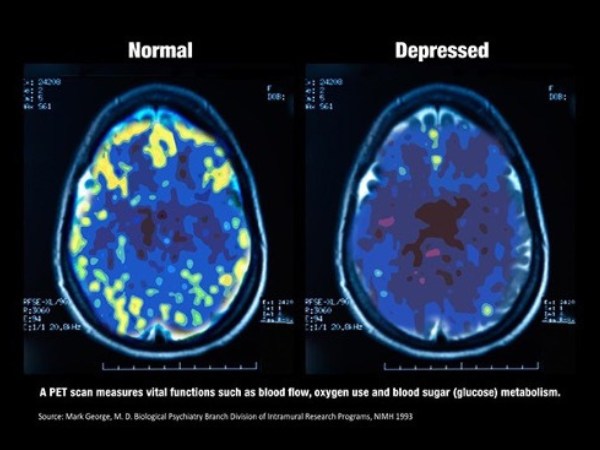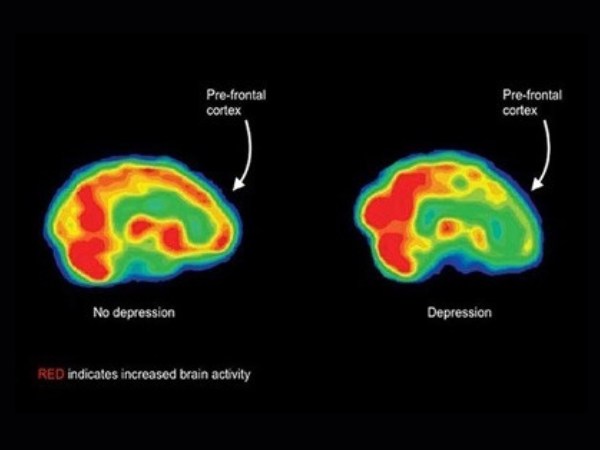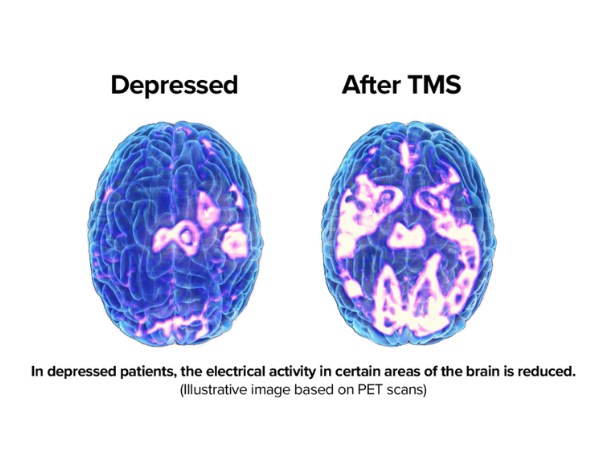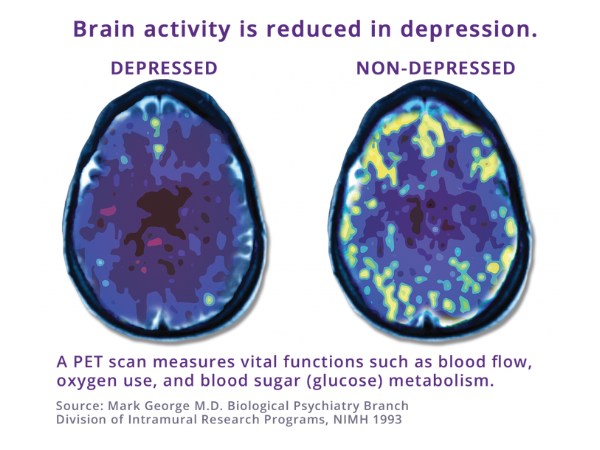Depression Treatment
Depression is a very common mental disorder that affects more than 300 million people globally.
Unfortunately, traditional treatment resistance via medication is circa 20%. Even more struggle with medication side effects.
This makes Transcranial Magnetic Stimulation (TMS) treatment for depression a very valuable alternative. This treatment has been extensively researched and is FDA Approved for Major Depressive Disorder.
The detailed research into TMS showed that there is asymmetry in the functioning of the frontal lobe of the brain in patients with depression, which makes TMS a great alternative treatment for many patients. TMS Depression treatment improves the functioning in the frontal lobe by increasing activity on the left side of the frontal lobe to reverse the asymmetry found in depressed patients.
TMS Institute of Arizona Offers:
- Most Insurances Accepted
- Board Certified Medical Doctors
- Specialists in Neurology, Psychology, Psychiatry, Depression and More.
- FDA Approved Treatments and Equipment
Are You Ready to Defeat Depression?
Call 480-448-2916 to schedule a detailed evaluation.


Call 480-448-2916 for more information.
Your Depression Doesn’t Have to Win. TMS Can Help.
Depression can often feel like a losing battle. You get some help and feel better for a while. Then something happens, and you’re back where you started — or worse. And despite trying different medications and therapies, the depression isn’t going away. It can be overwhelming.
That’s why we’re so excited about breakthrough depression treatments that are getting some remarkable results: repetitive TMS, Express TMS, Accelerated TMS, and MeRT, or Magnetic e-Resonance Therapy. See explanations of each below.
MeRT is a highly personalized use of transcranial magnetic stimulation (TMS) based on comprehensive diagnostic testing. The success of this treatment is due to its focus on your unique brain function.
Depression is a complex disorder that can be caused by a variety of factors, including altered neural circuits in the brain. These altered circuits can lead to changes in brain function, which can contribute to symptoms of depression. Various forms of TMS and MeRT treatments works directly on these altered brainwaves to improve their function.
Your Brain and Depression
Depression affects everyone differently, as no two brains are alike. Yet, commonalities exist in terms of how depression can affect the brain. Many changes occur in the brain during depression.
- Reduced activity in the prefrontal cortex leads to problems with concentration, motivation, and decision-making.
- Increased activity in the amygdala causes feelings of sadness, hopelessness, and worthlessness.
- Changes in the hippocampus create problems with memory and concentration.
- Changes in the neurotransmitters serotonin and norepinephrine can lead to sadness, fatigue, and appetite changes.
Fortunately, your brain can often repair itself. This concept, known as neuroplasticity, refers to how the brain can change, reorganize, or grow neural networks. MeRT works directly on those neural networks — areas of the brain that are out of communication — to improve their function.
With depression, EEG studies can show an imbalance in brainwave activity between the left and right hemispheres (asymmetry). We then plan a personalized program of TMS to address that asymmetry. As we strengthen your brainwave activity, we can reduce your depression symptoms.
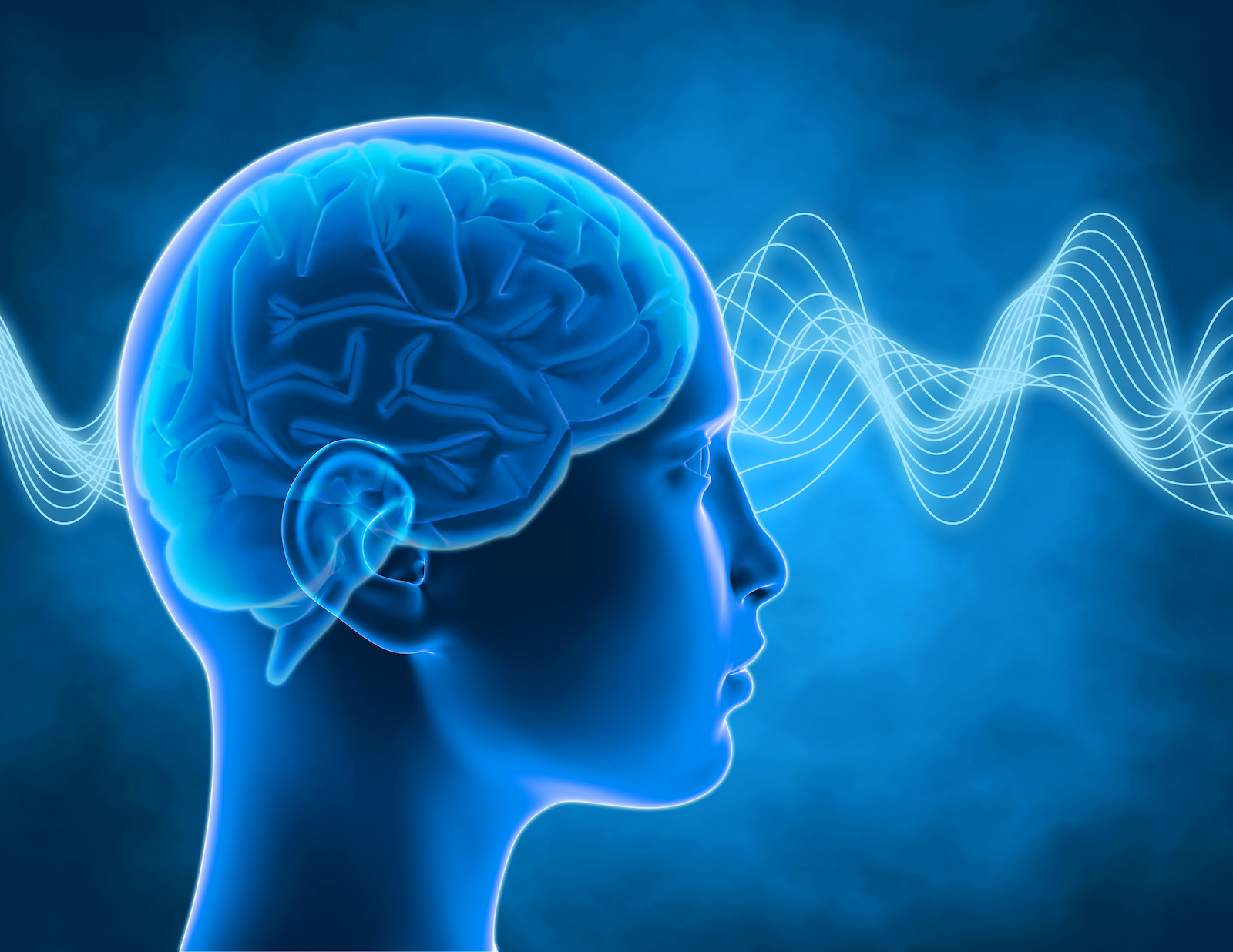
Here’s what one patient had to say after his MeRT treatment:
“I felt like I was alone, even though I was surrounded by love and care. It was just a cloud that would linger over my life every now and again. MeRT helped me better understand what was going on in my head and after a month of treatment, I was grateful to be depression-free and medication-free for the first time in years.”
What Depression Looks Like
TMS Options for Depression
We believe TMS should be considered a first-line treatment for moderate to severe Major Depressive Disorder (MDD). It can help restore peace of mind and give you the life you want and deserve without the risks and dependency associated with medications. Medications generally result in, at best, a 16% remission rate in depression symptoms, whereas TMS provides up to 80% remission rates. There are four types of TMS treatments for depression.
MeRT TMS
Highly tailored protocols as to frequency and location of treatment based on individual brain scans.
1 daily treatment that is 15-30 minutes long, usually for 4-6 weeks.
Tricare Prime, Select, and TriWest will usually cover. For all other insurance, we will provide the documentation for possible reimbursement.
Call 480-448-2916 for more information.

For active or retired Military for Depression
TriCare Insurance is Available for active military personnel, veterans, and their families experiencing Depression. The FDA approved the TMS equipment to treat Depression and TriCare approved coverage for Depression in 2016.
Tricare Prime, Select, and TriWest all cover TMS for MDD. In some cases, patients may be experiencing a mixture of MDD, PTSD, and/or Traumatic Brain Injury (TBI) and in these cases, MeRT TMS may be the most effective treatment. We are in-network with all 3 and are a part of the VA Community Care Network. Patients with these circumstances would benefit tremendously from TMS.
Depression can occur as a result of things experienced during your service. And it’s very common for other conditions to occur simultaneously, such as PTSD, Traumatic Brain Injury, and Anxiety.
When you seek help with us for your Depression, our treatment called MeRT, or Magnetic e-Resonance Therapy, can also help with any other problems that you are experiencing.
Hear what others have experienced from these treatments…
Video: What is TMS Therapy?
Video: Meet Richard, TMS Video Testimonial
Video: Meet Bari, TMS Video Testimonial
Video: TMS Q&A
Video: TMS Therapy and Depression
Video: Oliver’s Story
Talk with our New Patient Coordinator
Our New Patient Coordinator is here to answer all your questions so you can make the most informed decision.
She can explain our treatment protocols, fees, any possible insurance benefits, and more. She can also schedule you for the next step: a consultation with one of our Doctors.
From there, we can determine if you may benefit from MeRT or TMS treatment, and you can decide if you would like to move forward. We hope you will consider getting more information. You deserve to live a life free from your symptoms — and we want to help you do just that!
Call 480-448-2916 for more information.
Or fill in the form below and we will contact you.


